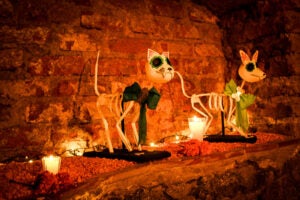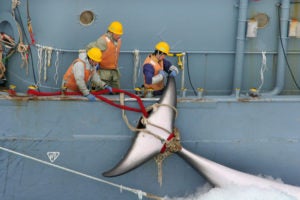
TORTUGUERO, Costa Rica—Humane Society International/Latin America recently provided free veterinary care to dozens of dogs and cats in Tortuguero, a small but much visited community in northeastern Costa Rica situated on the country’s Caribbean coast in proximity to an ecologically sensitive national park. The examinations and treatments were carried out as part of an initiative intended to strengthen Tortuguero’s status as an animal-friendly community.
Over two days, 63 pets including 44 dogs and 19 cats, received essential veterinary services including examinations, vaccinations, deworming and microchipping. This included 24 animals from the neighboring community of San Francisco, who were brought to the clinic by boat.
According to Andrea Borel, executive director of HSI/Latin America, the event marked the last activity of the year in Tortuguero under a pilot project aimed at empowering the community to become more animal-friendly. “Excellent results were achieved in both animal health campaigns, as well as in the other approaches taken throughout the year, mainly due to the high level of commitment from the community and the work of our ‘Animal Ambassadors,’ local individuals committed to leading animal welfare initiatives and helping make them sustainable over time,” Borel said.
Ahead of the event, the community’s Animal Ambassadors learned how to recognize stress in pets and take steps to create a calm, positive environment. One Ambassador, Scarleth Centeno, highlighted the impact: “Both campaigns ran smoothly and were well-organized, with minimal stress for the animals. The techniques we learned helped us identify and address any signs of discomfort, ensuring the dogs and cats felt safe and supported.”
The veterinary care services were complemented by educational sessions for community members on interactions between domestic pets and local wildlife. Tortuguero is uniquely situated near a national park that is home to diverse species, including sea turtles and jaguars, making responsible pet ownership critical to protecting both pets and wildlife.
HSI/Latin America developed the initiative in close collaboration with the National System of Conservation Areas (SINAC–MINAE), the Tortuguero National Park, the National Animal Health Service (SENASA), the School of Veterinary Medicine of the National University, the National Commission for Biodiversity Management (CONAGEBIO-MINAE), ASVO Costa Rica, Narime Foundation, Tortuguero Environmental Committee, and Sea Turtle Conservancy, among other parties.
ENDS
Media contact: Alejandra Zúñiga: alezuniga@outlook.com









